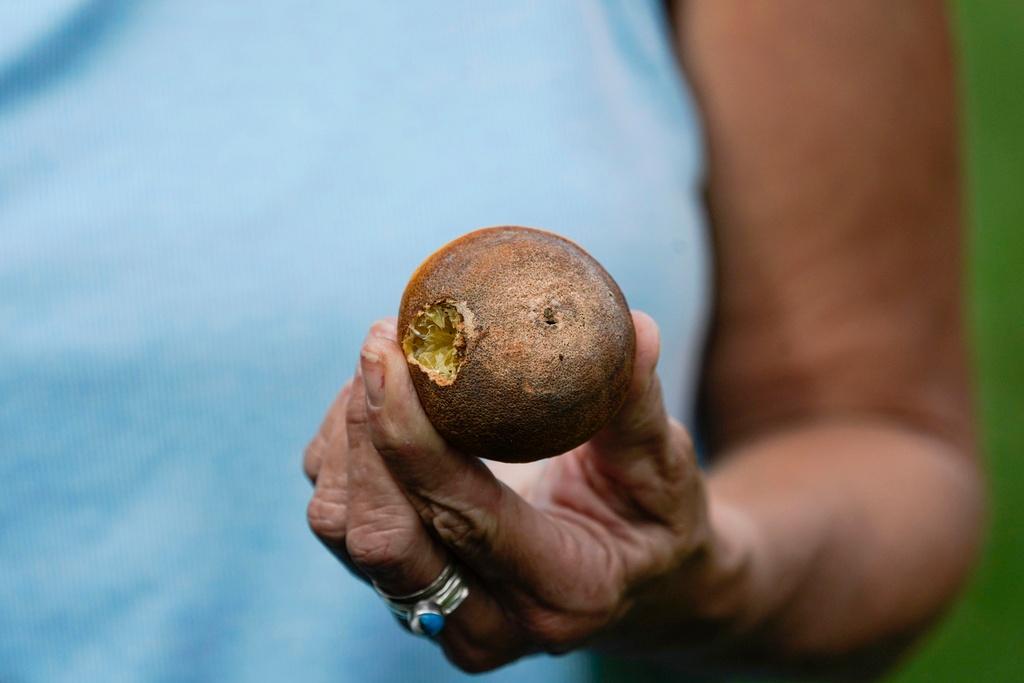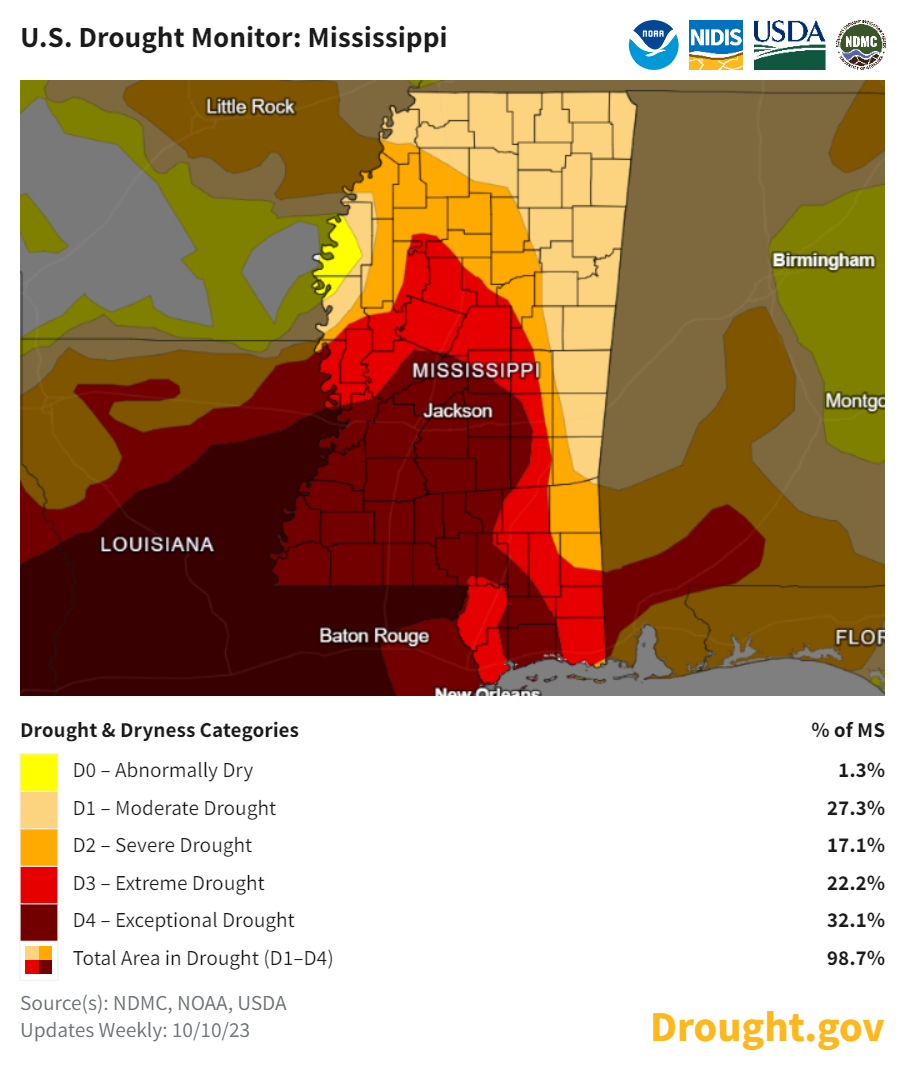Over 98% of Mississippi is currently under some kind of drought warning as dry conditions have carried over from the summer months. Farmers now harvesting fall crops say that they've suffered losses or a drop in quality because of the lack of rain.
Don Mitchell owns Mitchell Family Farms in Collins, where he grows several crops like pumpkins, peanuts and soybeans. He says the land with reliable irrigation systems produced crops normally, but some of the lots that rely only on rainwater were a "complete loss."
“When July hit, the crops that depended high on water… they suffered tremendously where they were not watered.” he said. “Some of my friends had a lot of crops that were totally dependent on rainfall in July and September. And they're taking it worse than me personally.”





